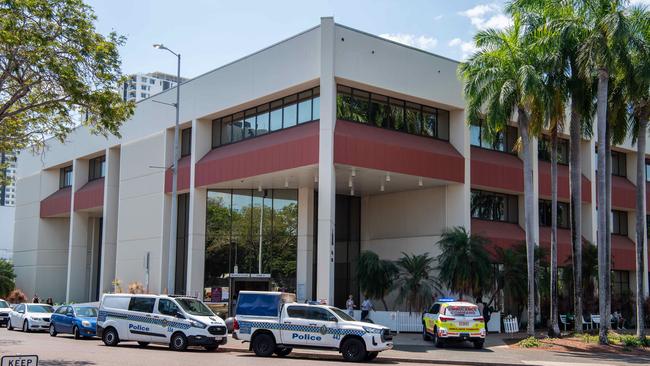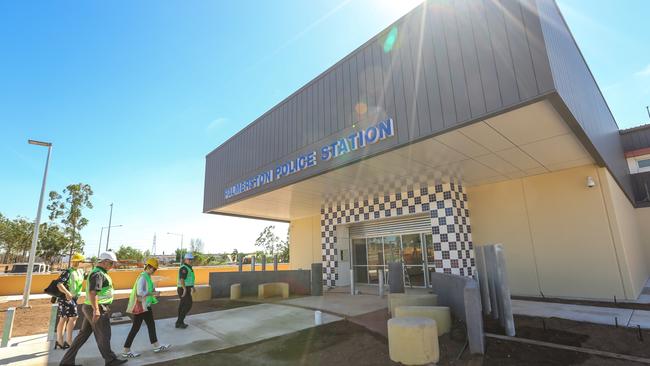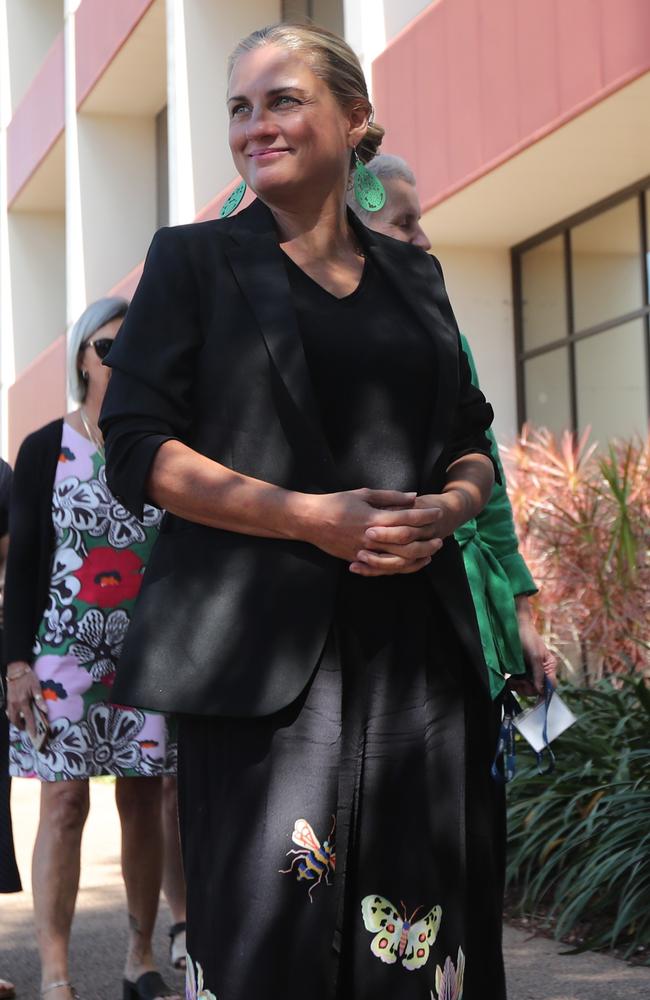Inside the NT’s ‘dysfunctional justice system’: Prisons at capacity, court and police cells full, lawyers unable to reach clients
A judge said he was being kept up at night by the thought of leaving Territorians — who have the right to the presumption of innocence — in crowded cells, with no access to their lawyers. See why people are being ‘denied access to basic justice’.

Police & Courts
Don't miss out on the headlines from Police & Courts. Followed categories will be added to My News.
Territorians are being denied access to ‘basic justice’ with defence lawyers unable to speak to clients due to overflowing prisoner numbers clogging up court cells and police stations.
Darwin Local Court has been in chaos recently, with the NT News aware of dozens of cases where Territorians were unable to speak to lawyers, spent multiple days in the watch house, or were not taken to court despite being in custody.
On Wednesday, North Australian Aboriginal Justice Agency lawyer Daniel Wotton told Judge Ben O’Loughlin he had five clients in custody, yet none had been brought to court by Corrections or NT Police.
Mr Wotton said he was not even certain where all his clients were.
Mr O’Loughlin was told that because the court cells were consistently at the 18-person capacity, Corrections was attempting to organise audio-visual links (AVL) into the watch houses for the hearings.
“The difficulty is they never appear on the custody list and they don’t appear on the AVL list,” Mr Wotton said.
One of his clients had been held for four days in the Palmerston cop shop, and despite being on the court list every day since Monday, he was only able to talk to a lawyer on Wednesday.
Mr O’Loughlin noted defence lawyers were being forced to “triage” clients on the fly, selecting who on the custody list they could actually bring before a judge.
On Thursday, Judge Allen Woodcock said he was being kept up at night by the thought of leaving Territorians — who have the right to the presumption of innocence — in crowded cells, with no access to their lawyers.
Mr Woodcock said the situation was “unacceptable” after yet another accused person in custody was unable to attend their own hearing.
“I’ve been thinking about it all week. It interrupts my sleep — as it should,” Mr Woodcock said.
“It’s wrong.”

Mr Woodcock was told one man was held for seven days in the Palmerston Watch House as his case was repeatedly adjourned over allegations he drove an uninsured and unregistered motor vehicle while disqualified, and breached a domestic violence order.
The NT News understands that since September 27, Corrections has failed to bring dozens of people in custody to court, with multiple lawyers expressing frustration after being unable to speak to clients.
A Corrections spokesman said the department was “managing” remand prisoners in Palmerston and Alice Springs watch houses due to prisons reaching capacity.
He said on Tuesday alone there were eight people in Palmerston waiting for their first mention in court, with two waiting in the police cells for their hearing in Alice Springs.
They were held alongside 62 people in Palmerston police station and 37 in Alice Springs, while 40 sentenced prisoners were in the Darwin City police prison, above the Mitchell St Coles.
“The Department of Corrections continues to work with stakeholders to ensure the proper management of prisoners and to minimise disruptions to court proceedings,” Corrections said.
‘EXTREMELY DYSFUNCTIONAL JUSTICE SYSTEM’
Criminal Lawyers Association of the NT president Beth Wild said overflowing prisons and people sleeping in watch houses were signs the Territory was “on the brink of an extremely dysfunctional justice system”.
“Our prison population, remand rates — that is people in prison waiting for their court dates — and waiting times for residential rehabilitation placements are at an all time high and on the rise,” Ms Wild said.
“An unequal society, one in which people are denied access to basic justice, is a principal driver of crime.”
Ms Wild said the situation was only going to get worse if the CLP were successful in pushing through its proposed bail changes in the October sittings.
“A first offender will have the presumption bail against them in many cases by proposed laws. That means they will not be bailed from the police station but be instead brought to court,” she said.
“What is happening now is that the cells at the court are full, prisoners are not getting brought to court at all.”

Limited legislative details of the CLP’s bail changes have been released, despite Chief Minister Lia Finocchiaro signalling they would be pushed through on urgency.
Deputy Chief Minister Gerard Maley did not respond to the criticisms of the proposed bail changes, however blamed the previous government for allowing “this problem to spiral out of control, and we are now left with cleaning up their mess”.
“Prison overcrowding is a problem that was long ignored by the former Labor Government, which was driven by ideology,” Mr Maley said.
“The CLP has a plan to fix up the Corrections mess, and give police their watch houses back, but we can’t fix it overnight.”
Mr Maley said the new Attorney General Marie-Clare Boothby was working to “ensure additional demands can be met” and he had been briefed by Corrections Commissioner Matthew Varley about the issue.
“I am pursuing contingency plans, both in the short and longer term,” he said.

However, Ms Wild said at its heart the courts and legal services needed to be adequately resourced to meet the demand.
“If we keep spending money on prisons and police, whilst the same time cutting funding to legal and social services, then all we see is an increase in prisoners, not a reduction in crime.”
The last Territory budget did not continue “one-off” funding payments to the courts which was meant to support additional judiciary, and a $1.9m grant to the NT Legal Aid Commission, sparking warnings that it would lead to a legal ‘bottleneck’.
The Law Society NT has called on the Commonwealth and NT Governments to immediately address funding shortfalls and growing system pressures.
Society president Mr Richard Henschke said it was “just not good enough” successive govermments had allowed the situation at Legal Aid NT to become so bad it had to even consider the reduction of its critical services as recently announced.
“The impact of these cuts will be felt across the whole of the criminal justice system in the Northern Territory for years to come,” Mr Henschke said.
“The Society is not only concerned at the impact on those charged with offences in the NT but also on the wellbeing of legal practitioners working in the criminal justice system.
“The Society therefore calls upon the Territory and Commonwealth governments to work with Legal Aid NT to ensure it has the necessary funding, resources and support to undertake its critical functions.
“The current situation requires an immediate and decisive response.”
Read related topics:Local Crime NT





